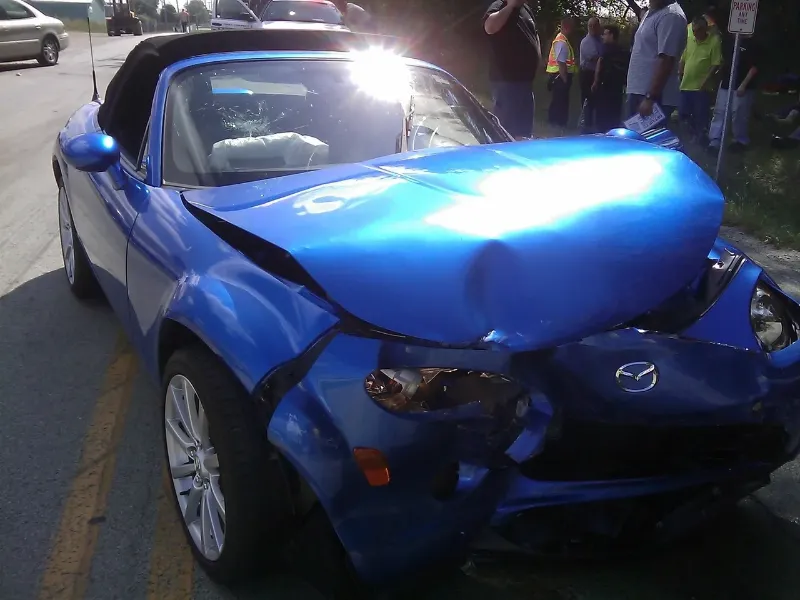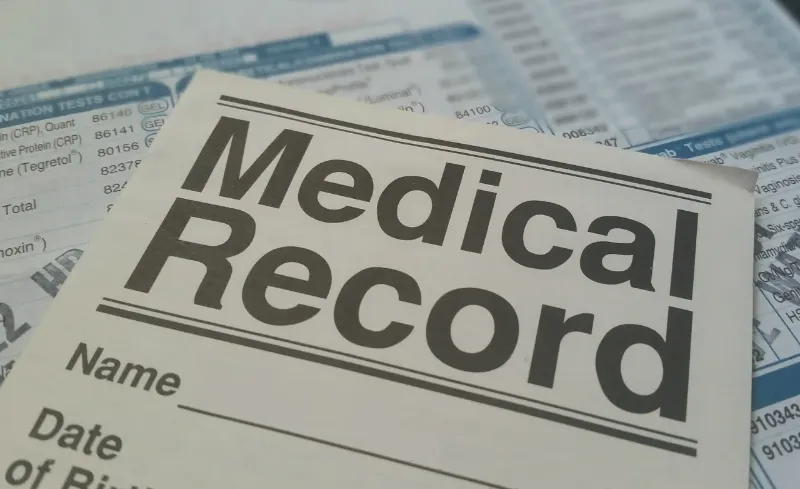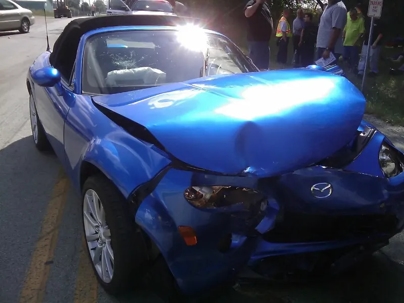How long does it take to settle a car wreck claim? This is one of the three (3) million-dollar questions when dealing with a car wreck claim. If I had a crystal ball, I could answer this question, every single time, sadly, no crystal ball, and the answer, is a bit frustrating, but it is what it is…it varies from case to case. There are so many factors that effect a car wreck claim, that vary from incident to incident, that it is pretty much impossible to give a set time frame, but I can give you some ideas or anticipate timelines.
1. Property Damage Claim v. Bodily Injury Claim

First off, when you are in a car wreck, you have 2 claims. You have a property damage claim and a bodily injury claim. On average, the property damage claim resolves MUCH QUICKER than the bodily injury claim. When dealing with property damage, you have 2 potential outcomes: (1) the property damage is repaired or (2) the vehicle is deemed a total loss. When it comes to deciding to repair the vehicle or deem it a total loss, it is totally up to the insurance carrier and most people are not aware of that fact. I have had many clients tell me that they want their car repaired, no matter what, and I have repeatedly had to tell them the choice is up to the insurance carrier. Typically, if the cost of repair exceeds 80% of the fair market value of the vehicle, the insurance company will choose to total the vehicle, as opposed to repairing it.
2. Time for Treatment

Treatment is the first and arguably, the most important, phase of the bodily injury claim. This is your one chance to get your body better, from the injuries from the car wreck, so you want to make sure you do everything right! Avoid any gaps in treatment, unless they are prescribed by the doctor. Typically, any gap in treatment, of more than 2 weeks, is a big issue, with most bodily injury adjusters. Each body is different, and each injury is different, so most treatment timelines will vary from wreck to wreck and person to person. Most adjusters argue that it is “unreasonable” to treat for more than 12 weeks, for soft tissue injuries to heal. This argument is rarely accurate, but it is a timeline to be aware of when dealing with a soft tissue injury claim. Soft tissue injuries are to the areas of your body that are not bones, like a strain or sprain of a ligament. Broken bones or injuries resulting in surgery, typically take much longer than 12 weeks to resolve. You also want to make sure you do not jump the gun on resolving your treatment, because once you settle your claim, unless you negotiate for future medicals, which rarely happens these days, your chance for payment of any further medicals, by the liability carrier of the person that caused your wreck, are gone.
3. Time to Gather Evidence

Once you have been released from your doctor and completed all of your treatment, it is time to gather any evidence you have not already received or gathered. If you do not have health insurance, you should have received bills from all of your providers, at this point. If you have health insurance and no balance is due, medical providers typically do not send out bills. You can call each of your providers and they must provide you with 1 free copy of your itemized statement; this is what you will need to present to the liability carrier. You will also need complete copies of your medical records. Sometimes clients come to me and give me copies of their discharge papers, from the emergency room, thinking this is a complete copy of their records and it is not. Most hospital visits include records for radiology, nurse’s notes, medication charts, etc. The adjusters typically want all of this. Depending on the hospital, and if they outsource their record copying services, it can take up to 6 weeks to get a complete copy of your medical records. Other evidence you will want to gather includes written confirmation of lost wages, off-work orders from each of your doctors, photographs of your injuries and any scarring (if you have any), and some “pre-wreck” evidence to show how your life was before the wreck. The best pre-wreck evidence is videos, but pictures are also very helpful. You will want to discuss what pre-wreck evidence is best for your case, with your personal injury attorney.
4. Time to Make a Demand and Negotiate

This is the most important phase to discuss with your personal injury attorney. The demand is your chance to show the adjuster how your life has changed, because of their insured’s negligence. Once that adjuster receives the demand, the industry average (not requirement) for the initial response to a demand is 30 days. From this point, there is no standard as to how negotiation will proceed. Some adjusters just lay it all on the line in that first offer and say that is all they have, not one penny more; other adjusters need, due to either supervisor or company requirements, up to 10 rounds of negotiations. What’s even more frustrating, is that you can have different experiences, as far as time frame or rounds of negotiations, with the same adjuster, so it is almost impossible to pinpoint any kind of negotiation timeline. The most important timeline to worry about, at this point, is the Statute of Limitations. This varies from state to state and is something you would want to discuss with your personal injury attorney.
5. Time to Show Me the Money

Assuming the adjuster made an acceptable offer; rarely does an offer make someone happy, because truly happy would be if the wreck had never occurred and that is not something the adjuster can offer, so money is the only remedy. If the adjuster’s top offer is enough to make you not want to go through the 2-year (minimum) litigation process (taking the case to trial), then you can accept. The adjuster will most likely want you to sign a release. You will want to review the release with your personal injury attorney. Once the release is signed and in the adjuster’s hand, you can expect, on average, a 30-day turnaround to have the check in your hand.
So, without a crystal ball, I cannot give any kind of definite timeline on what to expect when resolving a car wreck claim, but I did lay out some potential time frames to be aware of and gave you some insight into what to expect, as far as how long it will take to settle a car wreck claim.
Stay safe!

